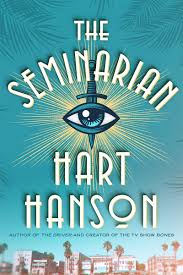My father grew up in a small lumber mill town in Idaho called Potlatch, where the panhandle meets the pan. In 1953, Potlatch High School won the state championship in Track & Field. How’s that for a school with a graduating class of seven?
How’s that for a school whose Track and Field team consisted of one person?
My father! (Not at the time. Later. Dad didn’t even know Mom yet.)
He won every event except the relay and that was only because the rules stipulated that a relay must consist of a minimum of three participants — or, in Dad’s case, 42.857143 % of his entire graduating class!
My grandparents boasted a lot about that accomplishment, but my father did not. When I asked him why, he said it was because real sports meant being part of a team.
I have always been terrible at team sports – unlike my father, I never knew what I was doing, what my teammates were doing, what they were going to do, or what they expected me to do. In high school I wrestled (sucked on offense, but hard to pin) and distance swimming.
For me, the difference between writing for TV and writing books comes down to the difference between me and my father. Not in a Freudian sense — which applies to every writer in every discipline — but in the pursuit of my writing-as-sports-analogy as applicable to my early writing career when I had to choose between putting the bulk of my writing efforts into scripts or books.
My natural inclination (long distance swimmer) suggested books, but … my wife, Brigitte, and I had a baby on the way and, in theory, script writing promised to generate income faster. So, I asked Dad what internal judo move he’d utilized on his team-player mentality that allowed him to triumph in a string of solo efforts to heroically win State.
Dad said, “Ah, it’s all athletics. Just throw your body at it as hard as you can.”
I translated that into the following advice: It’s all writing. Just throw your (fingers? eyeballs? head?) at (the blank page) as hard as you can.
All writers face the blank page. That’s what makes us heroes. But where book-writers face that blank page in a vertiginous endless-void-like silence, scriptwriters face it engulfed by a deafening sonic tsunami of clamor.
To me that clamor sounds like a pack of hyenas at dinner. A movie-writer friend describes a subsonic groan; another a banshee shriek; another his mother banging on his bedroom door and asking what he’s doing in there. Even before typing “Fade In” script writers hear that noise, and no matter the individual manifestation, like, we know the source: pre-existing demands by a Host of Others.
These “Others” are not the amorphous and elusive “audience” that all writers — book and script alike — hope to reach. That audience can be muted in the same way that — depending upon our belief system — we scrape through the day in denial that gods, aliens, God, or whoever is running the computer simulation in which we all live is watching our every move.
Scriptwriters face additional Others. Other Others. Flesh-and-blood human beings with faces — producers, directors, actors, etc. Not just indivduals but groups. Nay! Teams of people who, in the best-case scenario will partner up with the script writer to produce the script in its final form.
Book-writers have only ourselves to please because the book is its own final form.
Scripts are not their own final form. It is only the foundation upon which its final form can be realized: a moving picture.
To become a moving picture, scripts require allies, colleagues, compatriots, partners, patrons, comrades, collaborators, co-conspirators, and friends. All of whom will turn on us like hyenas (which is why I hear hyenas) if we don’t deliver what they want, need, and desire.
Which is why scriptwriters appear waving a script, saying, “Hey, everybody! What do you think of this?”
Looking for affirmation.
Book-writers appear, waving books, saying “Hey, everybody! Look what I did!”
Presenting the book as an affirmation.
To get the Host of Others on board, a script is required to prioritize story above all else. Starting with the person/studio/production company that is paying for the script and expects profits in return. Books can prioritize story if they want — but books have the option to dwell and ruminate, to stop and smell the roses, without causing a ruckus.
When scripts ruminate and poeticize, story steps back, crosses its arms, and awaits its cue to take center stage. Meanwhile, the audience checks their phones, or leaves, and the writer is labeled “self-indulgent” or — rarely, but it happens — a “genius”.
In a script, it’s easy-peasy in a script to show a character thinking. The scriptwriter simply types: The character thinks — but it’s nearly impossible to show what they’re thinking. We can help by typing: The character thinks about that distant afternoon when their father took them to discover ice. At which point the actor — quite rightly — protests, “How the hell am I supposed to convey that? Shiver? All that shows is that I’m chilly.”
The camera can always luxuriate on an expressive face with eyes that reflect the universe. Just not for too long. What counts as “too long” has nothing to do with the writing and everything to do with whose face we’re luxuriating upon.
Scripts face outward. All the internal longings and thoughts must be dramatized. Books can look both outward but also inward — telling us in poetic prose all about those longings in ways that get readers to highlight the lines and dog-ear the page.
Scripts are about doing.
Books are about being.
Ask a script writer, “What is your script about?” and we should be able to do so in a sentence or two.
Ask a book writer the same question and we usually start with, “Well, it’s about a quite a few things, actually…”
Scripts tend to be centered around somebody who wants a tangible something. A thing or an event. Motivated by an internal, universal longing which must be made clear through dramatization.
Because not everything in a book requires dramatization, a book can afford to, as an old professor of mine once said, “Dance around the shithouse.” A book doesn’t have to dance, but it can. Which sounds easier until the writer recognizes that, at every step, there are so many options for getting where we want to go.
It’s easier to go wrong in a book and there’s nobody but the writer to take the blame.
When a moving picture goes wrong, the script writer has lots of people to help fix it — and even more to take the blame.
We can blame studio execs: “It would have been great if the script hadn’t been dumbed down for the audience!”
We can blame directors: “It would have been great if you’d moved the camera more (or less) gotten some close-ups (or beauty shots).”
We can blame editors: “It would have been great if the right image had been on the screen at the right time.”
We can blame composers: “It would have been great if the score was sad during the sad times and exciting during the exciting times.”
We can blame actors: “It would have been great if it hadn’t been for all that improvisation!”
We can blame cinematographers: “It would have been great if you’d been able to see it!”
We can blame Locations: “It would have been great if the mansion scene hadn’t been shot in a shed.”
We can blame Sound: see cinematographers but substitute “hear” for “see”.
We sound terrible but please, remember, when the project is a success, all those same people will take credit — a waste of time because only the director will be successful.
Book writers have no one else to blame. At least not for the content. We are reduced to blaming — or praising — marketing. And the narrator of the audiobook.
In any case, all a writer can do is learn from my father: Throw yourself at it. Give it your all. Leave the boasting to your parents and offspring.
***





















